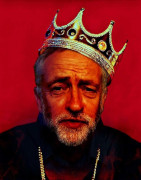|
What was Manstein's Backhand blow operation during the summer of 43'? The one that was scrapped in favor of Operation Citadel? I know about the Kharkov one, but cant seem to find any information on what the one in the south designed to push the Soviets against the Sea of Azov was.
|
|
|
|

|
| # ? Apr 23, 2024 09:30 |
|
After WWII both [West] Germany and Japan the losers of the conflict seem to have better economies than the victors, am I right in thinking that, and how have other wars affected economies?
|
|
|
|
Crankit posted:After WWII both [West] Germany and Japan the losers of the conflict seem to have better economies than the victors, am I right in thinking that, and how have other wars affected economies? That wording is dodgy. Better economies, in which way? GDP? Inflation? After WWII, when? 1945? 2011? By victors, are we talking about USA or Russia or Britain or Brazil? The Allies that won WW2 were a diverse bunch of countries and it's hard to generalise them.
|
|
|
|
Are any of the memoirs the German generals published post-war worth reading? Or are they, as I suspect, hundreds of pages of weasally "not our fault dude" back-pedalling?
BeigeJacket fucked around with this message at 15:00 on Nov 21, 2011 |
|
|
|
Saint Celestine posted:What was Manstein's Backhand blow operation during the summer of 43'? The one that was scrapped in favor of Operation Citadel? I know about the Kharkov one, but cant seem to find any information on what the one in the south designed to push the Soviets against the Sea of Azov was. The backhand blow actually happened. It was a counterattack in response to Star and Gallop, the offensives that took place just after Uranus (the one that encircled the 6th Army at Stalingrad). See the Third Battle of Kharkov.
|
|
|
|
BeigeJacket posted:Are any of the memoirs the German generals published post-war worth reading? Or are they, as I suspect, hundreds of pages of weasally "not our fault dude" back-pedalling? The real value in them is to understand how they wanted their contributions to be viewed by the US military (who pretty much forced the first two to write up their recollections) and later generations as well as to get a feel for what it is actually like to command large groups of men. The fog of war is really apparent.
|
|
|
|
wins32767 posted:The backhand blow actually happened. It was a counterattack in response to Star and Gallop, the offensives that took place just after Uranus (the one that encircled the 6th Army at Stalingrad). See the Third Battle of Kharkov. Was there a submitted plan for another such strategy in the summer of 43'? I thought I read somewhere that Manstein wanted to repeat it in the south, but Hitler and OKW chose Operation Citadel instead of Mansteins.
|
|
|
|
wins32767 posted:The backhand blow actually happened. It was a counterattack in response to Star and Gallop, the offensives that took place just after Uranus (the one that encircled the 6th Army at Stalingrad). See the Third Battle of Kharkov. The Backhand Blow is usually the name given to the Strategy that Manstein proposed after Kharkov, where he wanted to prosecute the war by cutting up Soviet offensives. Hitler instead opted for Kursk. It has to be seen in the broader strategic context of the Eastern Front post-Stalingrad where professionals like Manstein realised that the German army could not go on the strategic offensive again and had to start trading space to bleed the Red Army, versus Hitler.
|
|
|
|
Alchenar posted:The Backhand Blow is usually the name given to the Strategy that Manstein proposed after Kharkov, where he wanted to prosecute the war by cutting up Soviet offensives. Hitler instead opted for Kursk. I take your point within the larger historiography, but he was proposing doing exactly what he'd done at Kharkov, which was wait for the Soviets to over extend then counter-attack them.
|
|
|
|
wins32767 posted:I take your point within the larger historiography, but he was proposing doing exactly what he'd done at Kharkov, which was wait for the Soviets to over extend then counter-attack them. I looked at the map of the Eastern front prior to Citadel, Was he proposing just to let the soviets make the first move then? Or was he anticipating a move in the south near the sea of azov? Also, wouldnt the soviets catch on, and defeat the strategy by just slowing down their advance? Saint Celestine fucked around with this message at 18:10 on Nov 21, 2011 |
|
|
|
Nenonen posted:That wording is dodgy. Better economies, in which way? GDP? Inflation? After WWII, when? 1945? 2011? By victors, are we talking about USA or Russia or Britain or Brazil? The Allies that won WW2 were a diverse bunch of countries and it's hard to generalise them. When also matters. Japan was a serious economic force in the 80s, but not so much the 50s. Kind of hard to credit WW2 with that.
|
|
|
|
Saint Celestine posted:I looked at the map of the Eastern front prior to Citadel, Was he proposing just to let the soviets make the first move then? Or was he anticipating a move in the south near the sea of azov? Yes to the first - the Backhand Blow involved letting the Soviets advance, wait for their armored formations to outpace their logistics, then deliver the "backhand blow" For the second - we don't know how quickly they would have wised up/adapted, but the expectation that they would have done so eventually is usually brought up in discussions of "Well what if Hitler stopped meddling and let the REAL generals do their work, would the war in the East have been salvageable?" to the tune of "No, it wouldn't have been. They might have dragged the war on for longer, but the Soviets won't let themselves be backhanded forever"
|
|
|
|
Were the Japanese on the cusp of surrendering before the A-bomb was used on them?
|
|
|
Oxford Comma posted:Were the Japanese on the cusp of surrendering before the A-bomb was used on them? Not really. Oh they should have been. Their fleet was in tatters and what was left didn't have enough oil to go anywhere, they were falling back in China and everywhere else, and the Americans could bomb them whenever and where ever they wanted. Despite all that, though, they were drafting civilians into militia units armed with pikes to charge the beaches when the invasion came. In fact, given that hardcore members of the Army tried to stage a coup and seize the recording the Emperor made declaring the surrender, arguably they weren't on the cusp after the bombing either. It was as much the courage of the Emperor and his staff that brought about the surrender as anything to do with the bombs. Left on their own, the Japanese military might have kept on fighting to the bitter nuclear wasteland end. Though whether it was the A-Bombs or the fact that the Russians were invading Manchuria that was the final tipping point in Hirohito's decision is a hotly debated point in military history circles.
|
|
|
|
|
Oxford Comma posted:Were the Japanese on the cusp of surrendering before the A-bomb was used on them? EDIT: I have a question of my own - might it have made a significant difference for the Germans to abandon the development of their heavier tanks, such as the Tiger and the King Tiger and just go for large-scale production of a single, standardized tank design? I'm thinking either the Panther line or even the Panzer IV gradenko_2000 fucked around with this message at 07:11 on Nov 24, 2011 |
|
|
|
In the Mongolian invasions of Japan, if most of their fleet wasn't wiped out by storms, could they have successfully taken Japan?
|
|
|
gradenko_2000 posted:I think the general opinion is that they weren't. What's hotly debated is whether or not it was Operation August Storm, or the A-bombs, that pushed them over the edge (or both, but to which degree). The thing is though even if Germany does go to mass production they will still be outnumbered and where are you going to get the extra oil to put in those tanks? So based on the resource limitations they faced a smaller force of elite tanks is better than a larger force of good tanks.
|
|
|
|
|
gradenko_2000 posted:EDIT: I have a question of my own - might it have made a significant difference for the Germans There are a lot of things that Nazi Germany could have done to improve the efficiency of their war machine in small ways, but ultimately they didn't lose the war by anything resembling a narrow margin. It was a blowout, they were comprehensively outfought and utterly defeated. quote:to abandon the development of their heavier tanks, such as the Tiger and the King Tiger and just go for large-scale production of a single, standardized tank design? I'm thinking either the Panther line or even the Panzer IV The Panzer IV was a good tank and it ended up being a versatile machine, but there were limits to how far its combat effectiveness could be extended through modification. It was meeting those limits (especially in terms of horsepower) by 1942-3, which was one of the reasons for the development of the Panther. Once its initial mechanical problems were worked out, the Panther was a superb tank. It's possible that if resources had been shifted away from further development and production of heavy tanks, and instead devoted to refinement and production of Panthers, they could have fielded more of them. It's doubtful that this would have made "a significant difference for the Germans," though. The Panther didn't even see combat until Kursk, and it wasn't fit for service until several months after that. By the time the Panther had been made useful, Germany's situation was well beyond salvaging. Schenck v. U.S. fucked around with this message at 10:32 on Nov 24, 2011 |
|
|
|
gradenko_2000 posted:
It wouldn't have saved the Germans- nothing would have at that point (bar some Alternate History nonsense where they got nukes first) but it would have been helpful. The Wehrmacht had 3 basic designs of tanks and assault guns IIRC, all requiring specific spare parts which was a pain in the balls logistically speaking. All the Soviet models were based around the same T-34 chassis, which made their supply chain a whole lot easier, especially considering they didn't have to move their goodies through 1000 miles of terrain that was plagued by partisans blowing up rail tracks, etc.
|
|
|
|
They actually tried to standardize their tanks (http://en.wikipedia.org/wiki/Entwicklung_series) late in the war. The thing about Nazi Germany is that they never thought about losing the war, women were allowed to work in factories, most production was slave labored and worse than that was the fact that most vehicles were special little snow-flakes that required their own parts which made repairing hell. Combine the lack of spare parts with slave labored tanks and you can see how the Germans never could've won the production war. And while the Germans had massive fuel problems, most of them came from their heavy tanks sucking extreme amounts of fuel. A more liberal use of medium, less fuel demanding tanks would probably relieve the Germans of some fuel pressure. Not that it mattered much, after 1945 the Soviets would be vomiting ISs and t-54s while the Allies would be making GBS threads Pattons and Centurions. All the while their aerial power would keep rising while the Germans relied on 17 year old kids flying manned missiles.
|
|
|
|
Thanks guys, while I knew that Germany was totally overmatched in the production department, it never occurred to me that they were underproducing themselves by that much as well.
|
|
|
gradenko_2000 posted:Thanks guys, while I knew that Germany was totally overmatched in the production department, it never occurred to me that they were underproducing themselves by that much as well. Ironically, they were victims of their own success. Rather than use all the resources they had, including women workers, from the the very beginning, the Germans left a lot of their production on the sidelines until late in the war, when it was too late. After all, you don't need to resort to that when you're winning, right? Meanwhile, on the Allied side, things looked so bleak early on that desperation measures were being enacted almost immediately, especially with the Russians who pulled off some amazing feats of industry in a very short time. Granted, much of that was because Stalin was willing to be ruthless even with his own people (especially with his own people), but to conceive of picking up your industrial base and moving it to the other side of the Urals, much less actually pulling it off? It was certainly impressive.
|
|
|
|
|
Mans posted:Not that it mattered much, after 1945 the Soviets would be vomiting ISs and t-54s while the Allies would be making GBS threads Pattons and Centurions. All the while their aerial power would keep rising while the Germans relied on 17 year old kids flying manned missiles. They certainly weren't vomiting T-54s and IS-3s, but they could have if the war had lasted any longer. Meanwhile, T-44s and IS-2s were more than enough to bash Germany's face in.
|
|
|
|
Ensign Expendable posted:They certainly weren't vomiting T-54s and IS-3s, but they could have if the war had lasted any longer. Meanwhile, T-44s and IS-2s were more than enough to bash Germany's face in. I recall Soviets had like maybe a battalion equipped with T-44's ready for service, but when the time came to send them to front they were re-equipped with T-34/85's because it was felt they would only complicate logistics for very little gain. Again, had it been Heer, they would have built enough to equip a Panzer company, with five different variants with noninterchangeable spare parts. And they would have had cute animal names.
|
|
|
|
gradenko_2000 posted:Thanks guys, while I knew that Germany was totally overmatched in the production department, it never occurred to me that they were underproducing themselves by that much as well. This to the point that production numbers for most things from tanks to planes actually rose in both 1943 and 1944 despite the allied bombing. To a degree the joke that the Luftwaffe never ran out of planes, it just ran out of oil and pilots is kind of true.(they also lost a gently caress load of planes) *edit* In fact, look at the numbers between 1942 and 1943: http://en.wikipedia.org/wiki/German_armored_fighting_vehicle_production_during_World_War_II 5,500 to 13,600. Though question is, even if Germany right from the start was producing tanks in the numbers it did in 43/44, where would it get the oil to fuel them all. Germany's oil supply the moment Soviet supplies stopped coming in was bad enough as it was and was already a huge logistical nightmare in terms of fueling units by the time of Case Blue Amused to Death fucked around with this message at 20:26 on Nov 24, 2011 |
|
|
|
ThePutty posted:In the Mongolian invasions of Japan, if most of their fleet wasn't wiped out by storms, could they have successfully taken Japan? I'm actually waiting for a book on the subject to appear in my mailbox any day now, so I'll be more able to answer after getting it. But well, fending off the two invasions pretty much bankrupted the central government and started a vicious cycle that plunged Japan into civil war. So even with the help of the elements it turned out really costly for Japan, and most likely it would have been even more so without the typhoons.
|
|
|
|
My brother claims the Civil War was a useless war because slavery would have become economically unviable around 30 years after the 1860s. He told me it would become too expensive to care for the slaves. (He also claims this is why in a libertarian society there wouldn't be slavery) Bullshit? Not bullshit?
Farecoal fucked around with this message at 03:59 on Nov 25, 2011 |
|
|
|
Farecoal posted:My brother claims the Civil War was a useless war because slavery would have become economically unviable around 30 years after the 1860s. He told me it would become too expensive to care for the slaves. (He also claims this is why in a libertarian society there wouldn't be slavery) Bullshit? Not bullshit? I admit I'm not the most knowledgeable on the subject of your civil war and slave economy; however, judging by the fact that agricultural companies like the one in Florida apparently found slave labour profitable today, and that the southern portions of the United States were still based on an agricultural economy, there's no real reason to believe that it would. Of course, even if the plantation system were to become economically unviable, other forms of slavery could still persist ("house" slavery, sexual slavery, etc.).
|
|
|
|
Farecoal posted:My brother claims the Civil War was a useless war because slavery would have become economically unviable around 30 years after the 1860s. He told me it would become too expensive to care for the slaves. (He also claims this is why in a libertarian society there wouldn't be slavery) Bullshit? Not bullshit? Complete Bullshit. By the point the Civil War came about, it was already painfully obvious that Slavery had stunted the South's economic growth. The reason that the South wanted to secede was because the Planter class that ruled the South had a tremendous amount of wealth built into the Slave trade, which would vanish into nothingness if abolition were to occur. They wanted things to stay exactly the same, and fought tooth and nail to keep it that way. (For a fun modern day comparison, imagine the Modern Republican Party as the South and the Democrats as the North.) Edit: Summary-they would have kept Slavery until the end of time, regardless of the actual economic benefits, simply because so much of their wealth was based on the material value of the slaves themselves. Edit Two: Example-Imagine that you own a plantation that employs about 150 slaves. If the average value of each slave is about ~$1000, that's $150,000 alone that you have invested in slaves. When you adjust it for inflation, you're looking at over three and a half million dollars worth of human property-property that can reproduce, increasing your wealth while continuing to perform intensive labor on your plantation. In short, Slavery is one hell of a hosed up system. Acebuckeye13 fucked around with this message at 05:50 on Nov 25, 2011 |
|
|
|
Ensign Expendable posted:They certainly weren't vomiting T-54s and IS-3s, but they could have if the war had lasted any longer. Meanwhile, T-44s and s were more than enough to bash Germany's face in. I've been checking out the IS-2 and it looks pretty impressive for the time, anyone know how it did in actual practice?
|
|
|
|
Pretty drat well. Even though the 122mm gun was selected for its HE performance in an infantry support role, it was enough to penetrate Panther and Tiger armour. Test reports say that a Panther tank was thrown back several meters after penetration, although I find that somewhat hard to believe. The did have an unfortunate fault of two-piece ammunition, which made reload times fairly long.
|
|
|
|
Farecoal posted:My brother claims the Civil War was a useless war because slavery would have become economically unviable around 30 years after the 1860s. He told me it would become too expensive to care for the slaves. (He also claims this is why in a libertarian society there wouldn't be slavery) Bullshit? Not bullshit? Did your brother explain why he thought it would become more expensive to care for slaves over the next 30 years? Were they going to petition for universal health care? Were other civilizations going to switch to the Emancipation civic? Maybe your brother meant that economic factors other than the expense of caring for slaves were going to make them a relatively bad investment, such as depressed demand for cotton overseas or diminishing returns from exhausted soil? That could be, I don't know. I can, however, give you some background that I ripped off from a Teaching Company lecture called "Southern Society and the Defense of Slavery" (lecture 33 in the American History course -- I know it's not the greatest source but you guys can correct and add to it as you like.) I think the lecture does a good job of explaining why and how economic factors interacted with social mores to entrench slavery in the South, so I'll do my best to summarize it here. *** When the American constitution was being drafted, there was a strong sentiment that slavery would die naturally of economic causes because tobacco markets were suffering. Without a cash crop like tobacco or sugar cane, there was not much economic benefit to owning slaves. Slaveholders, who were almost half of the constitutional convention in 1787, even allowed the federal government the constitutional power to ban the import of slaves after 1808 (which the federal government did). "The hour of emancipation is advancing," wrote Thomas Jefferson, "it will come." Besides, there were plenty of white immigrants arriving in America who could provide cheap labour without being black, so it was convenient to turn away from slavery. But then the spinning jenny and the cotton gin were invented and English demand for cotton grew at the same time , so it became much more profitable to own slaves. Export of cotton to Britain jumped from 12 million pounds annually in 1790 to 588 million pounds annually in 1850. The number of slaves in America stopped decreasing and went from .7 million in 1790 to 3.9 million in 1860. At that point, cotton basically was the Southern economy. With more slaves came more insurrections and revolts like the Amistad Seizure, the Charleston Uprising, and Nat Turner's slave rebellion. Southern fears of a Haitian Revolution in their backyard caused them to turn their backs on emancipation and crackdown on slaves, causing greater hostility amongst slaves, causing more slave insurrections. This cycle coincided with a change in the Southern ethos regarding slaves: before it had seemed as though they were just going to become a relic of the past but as time went on a sophisticated racism developed. Negroes were described as the necessary "mudsill" upon which the rest of society sat, and their subjugation was rationalized as not that bad through perverse logic. I should mention that there were conscientious objectors to slavery as well. There was international and domestic political pressure against slavery, and many religious groups turned against the institution. These movements were somewhat counter-productive, however, because they fed into the Southern persecution complex. For more information I recommend checking out -- for free -- lectures 2 and 3 in this Yale course on the American Civil War. *** In my humble opinion, economics was the primary reason why slavery existed. Other regions started to produce more cotton during the American Civil War but that might not have happened if the South could have shipped more than 10% of its cotton yield during the war. Global demand for cotton grew and I suspect demand for American cotton would have remained healthy without the war, but even if it was cut in half there would still have been more than enough demand to keep slavery afloat because you would only be going back to earlier levels that had already been proven to support slavery. And even if the bottom completely dropped out on the cotton market, there would still have been a proslavery culture that would have resisted emancipation as a matter of principle for decades. Lastly, even if it was true that slavery would have been abolished in 30 years anyway, that is still 30 years of slavery that 4 million slaves would have to wait through, so your brother calling the war "useless" is always going to be bullshit. Farecoal posted:Edit: Summary-they would have kept Slavery until the end of time, regardless of the actual economic benefits, simply because so much of their wealth was based on the material value of the slaves themselves. Well if the "actual economic benefits" to slavery fell then "the material value of the slave themselves" would fall too. A capital asset's value is largely determined by what level of income it produces.
|
|
|
|
Acebuckeye13 posted:Edit: Summary-they would have kept Slavery until the end of time, regardless of the actual economic benefits, simply because so much of their wealth was based on the material value of the slaves themselves. Also, I imagine slavery would actually have been very viable economically as soon as Ford-style mass production came into vogue. When you set things up so that each worker on your production line is essentially a machine performing a single action rather than an artisan, you don't need your workers to be skilled or love their work or be well educated; an ideal fit for slaves. Hell, it's why China produces so much cheap stuff right now; they don't have slavery per se but they do have a non-educated workforce that they can pay very low wages. Not much difference between that and paying no wages but providing food and lodging.
|
|
|
|
Retarded Pimp posted:I've been checking out the IS-2 and it looks pretty impressive for the time, anyone know how it did in actual practice? They were what the Tiger was supposed to be. Heavy hitting, heavy armored, reliable and powerful. Not only that, but they were 20 tons lighter, were faster, had far more range (both cannon wise and engine wise.) and hell, look at it, it was pretty! It did have an unfortunate ammo system, i do not know why so i wikipedia'd it. After testing with both BS-3 and A-19 guns, the latter was selected as the main armament of the new tank, primarily because of its ready availability and the effect of its large high-explosive shell when attacking German fortifications. The A-19 used a separate shell and powder charge, resulting in a lower rate of fire and reduced ammunition capacity, both serious disadvantages in tank-to-tank engagements. This meant that the IS-2 fired at a whooping 2 rounds per minute and carried barely 30 rounds of ammunition. Still, it was quite the powerhouse, even if the T-34\85 was the main battle tank of the Soviet Union. Mans fucked around with this message at 21:47 on Nov 25, 2011 |
|
|
|
jng2058 posted:Though whether it was the A-Bombs or the fact that the Russians were invading Manchuria that was the final tipping point in Hirohito's decision is a hotly debated point in military history circles. Did the timing of the Soviet Union's declaration of war against Japan have anything to do with the timing of the atomic bomb attacks? How much did the Soviet leaders know, officially and from espionage, about what the Americans dropped on Hiroshima?
|
|
|
|
Mans posted:It did have an unfortunate ammo system, i do not know why so i wikipedia'd it. To further clarify, the IS series was primarily designed for frontal assaults on German fortifications, in which role the better performance from 122mm HE shells far outweighed the negative characteristics of the round. Also, since they were generally present at the point of contact during an offensive, they would be working closely with self-propelled artillery and T-34-85s better suited to anti-tank work. The IS-series wasn't really designed to duel German tanks, and that's reflected in their capabilities.
|
|
|
|
Mans posted:This meant that the IS-2 fired at a whooping 2 rounds per minute and carried barely 30 rounds of ammunition. Still, it was quite the powerhouse, even if the T-34\85 was the main battle tank of the Soviet Union. Still, nothing compares to KV-2. 152mm howitzer as the main gun in 1941?! With a turret the size of a Sandcrawler. Of course, if you're a German, your first instinct is to stick a commander's cupola on top of it to make it even taller... 
|
|
|
|
Chamale posted:Did the timing of the Soviet Union's declaration of war against Japan have anything to do with the timing of the atomic bomb attacks? How much did the Soviet leaders know, officially and from espionage, about what the Americans dropped on Hiroshima? Truman told Stalin that the Americans had "a new weapon of unusual destructive force" on July 24th, about two weeks before the first bomb was dropped. The Soviets were working on their own bomb at this point and Stalin probably knew what Truman was talking about, though Stalin pulls off an unbelievable poker face if he does. Tough to be sure what happened because most retellings were being retold at the height of the Cold War when everyone wanted to make their side look better and the other side worse. A collection of different people's retellings of the conversation: quote:Truman Tells Stalin, July 24, 1945 gohuskies fucked around with this message at 22:13 on Nov 25, 2011 |
|
|
|
feedmegin posted:Hell, it's why China produces so much cheap stuff right now; they don't have slavery per se but they do have a non-educated workforce that they can pay very low wages. Not much difference between that and paying no wages but providing food and lodging. Just gonna nitpick a little here and say that China actually does have "slavery per se" in the Laogai prision system which as been shown to sell slave labour made consumer products time and time again. You can phone up the Laogai authorities business lines and place orders like any other export business. The gulag is alive and well, only now it makes more of a profit.
|
|
|
|

|
| # ? Apr 23, 2024 09:30 |
|
gohuskies posted:Truman told Stalin that the Americans had "a new weapon of unusual destructive force" on July 24th, about two weeks before the first bomb was dropped. The Soviets were working on their own bomb at this point and Stalin probably knew what Truman was talking about, though Stalin pulls off an unbelievable poker face if he does. Tough to be sure what happened because most retellings were being retold at the height of the Cold War when everyone wanted to make their side look better and the other side worse. A collection of different people's retellings of the conversation: Stuff like this is why Stalin is one of the most fascinating characters in history.
|
|
|




































